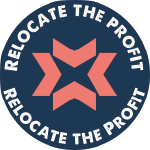As global mobility professionals, we see how the modern era presents dynamic challenges in balancing our talent’s personal and workplace needs. With the growing interest in remote working and the still pressing need for relocations, understanding which approach best aligns with a company’s culture and its employees’ aspirations is paramount. In our detailed examination of relocation versus remote working, we unearth exclusive insights that can assist in your strategic decisions and HR policies.
Relocation: The Company’s Care vs Personal Growth
Akim Kiku, Associate Global Mobility consultant, has provided an in-depth overview of the complexities of relocation. Diving into the heart of what it means for companies and employees alike, Akim underscores how relocation is a unique blend of corporate support and personal development.
For employees, being relocated often feels like the company is extending a warm hand to usher them into a new phase of life, free from the worries of accommodation, healthcare, and sometimes even transportation.
On the other hand, companies view relocations as a significant investment—an opportunity to nurture their talent in an immersive learning environment outside their comfort zone. It’s a strategic move that can aid in career advancement and add a layer of global understanding and adaptability to the employee profile.
Yet, this support comes with a price—a significant one. Financial obstacles are a considerable barrier for 33% of companies and a massive barrier for 11%. But the cost is not solely monetary. Specific individuals, especially those rooted in their local communities, might find the prospect of relocation daunting, not just on a professional level but also due to personal circumstances. The decision to relocate, as Akim stresses, cannot be one-size-fits-all; it must consider the unique stance of each employee and align with their personal goals and situations.
Remote Working: Autonomy and Flexibility
In our remote work discussion, Akim brought forth an essential element—freedom. Remote work isn’t just about being flexible with where you work; it’s about carrying the mantle of your career in the settings you choose, with 71% of remote workers stating that remote work helps balance their work and personal life, emphasising its positive impact.
However, this level of personal autonomy is a double-edged sword. While it empowers employees to design their workdays, it also necessitates self-sufficiency in managing living expenses that would otherwise be corporate-assisted in a relocation scenario. When considering relocation versus remote working, remote workers’ most desired fringe benefits include flexible hours, work-provided equipment, home office space, virtual team bonding activities, and internet assistance. Furthermore, 53% of remote workers say feeling connected to their coworkers is harder, indicating a potential challenge in remote work setups.
That said, many applaud remote working for its ability to maintain talent within a company without asking them to uproot their lives. This sense of rootedness can lead to greater retention rates and a more satisfied workforce, especially for employees with familial, community, or personal reasons to remain in their current locale.
It’s clear that for remote working to be successful, HR professionals and companies must ensure they provide support in other areas that may not traditionally fall under their jurisdiction. The responsibility shifts from establishing robust communication platforms to offering remote healthcare benefits, but the benefits can be equally rewarding for the company and the employee.
Relocation versus Remote Working – Incorporating Statistics into the Discussion:
A recent Mercer study on international assignments practices revealed that despite the associated complexities, more than half of companies expected an increase in various mobility types across 2023 and foresee those appreciations continuing well into 2024, including business travel (70%), virtual assignments (59%), short-term assignments (59%), one-way transfers (57%), international remote workers (56%), and locally hired foreigners (54%). Additionally, 45% expect to see an increase in long-term assignments again.
For the most part, companies appear to be gearing up for the shift, with 89% of companies wanting to improve the mobile employee experience, making it the number one priority.
Furthermore, 48% of companies are currently reviewing or planning to review their compensation approaches for mobile employees.
As the last few years have proven, we live in turbulent times, and clinging rigidly to traditional working models can cause company cultures to drown. Navigating the work landscape of the future requires agility, empathy, and a deep understanding of the multifaceted factors at play. 98% of workers want to work remotely at least some of the time, highlighting the increasing demand for remote work opportunities. Regarding relocation, a study highlighted that 35% of UK workers have relocated for a job before. In comparison, 24% would consider it, and most workers were more willing to relocate for work due to COVID-19, with 80% willing to relocate during the pandemic, including 31% who would relocate internationally.
Final Thoughts: Navigating the Work Landscape
In his final thoughts, Akim emphasised the need for a nuanced perspective when advocating for relocation versus remote working. What might seem like an obvious choice for the company’s growth might not resonate with the core values and lifestyle of the employee, and vice versa.
The key takeaway from their conversation is the importance of balance and tailored solutions. Corporate policies that straitjacket employees into a prescribed mode of work without room for personal choice can lead to dissatisfaction and attrition. Instead, HR professionals should work towards offering flexible, individualised pathways that meet both the employee’s individual goals and the company’s strategic objectives.
Navigating the work landscape of the future requires agility, empathy, and a deep understanding of the multifaceted factors at play. By crafting policies and approaches that consider the insights shared in this dialogue, HR professionals can ensure their companies remain at the forefront of attracting and retaining top talent, no matter where they choose to call home.
Remember, this is a new frontier with no one-size-fits-all approach. The key lies in remaining receptive to change and continually adapting your HR strategies to the evolving needs of your workforce. With this dynamic mindset and insights from our discussion, you’re better equipped to lead your organisation forward in this brave new world of work.
Need some help?
Integrated Mobility Solutions from IPM Global
At IPM Global, we understand the importance of maintaining a human touch in global mobility programs, even as technology advances. Our highly experienced mobility consultants have supported companies through recessions and world crises. We understand the speed and urgency needed when companies adapt. Juggling your assignee population while maintaining organisational compliance is a challenging feat. That is why we rely on more than our previous experience. Our team stays current on shifts and trends in global mobility, from changes in business traveller regulations to political turmoil. This commitment lets us strategically advise clients and help them achieve their commercial objectives. So, if your company is considering implementing or expanding a global mobility program, contact us today for a friendly, no-obligation discussion.






